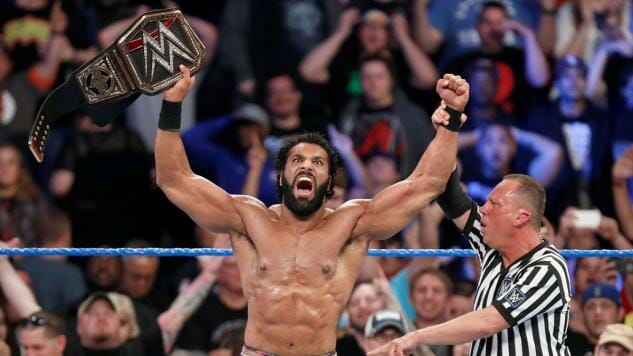The Orb of Jinder: The Inevitable Globalism of the Trump-WWE Axis
Lead photos courtesy of WWE.com
There is no metric by which Jinder Mahal is a “deserving” WWE champion, if you prescribe to the idea that being the standard-bearer for that company is a position of prestige. Ratings have continued to stagnate during his rapid ascent, he has failed to sports-entertain in the ring even opposite sure-things like Cesaro, and Backlash’s failure to sell out in the usually rabid Chicago market suggests he may drive people away more than he draws them in. The minimum standard for being a “good wrestler” is whether you can perform without injuring your opponent, and it was only a few weeks ago that Mahal concussed the once-ascendant Finn Balor with a rudimentary forearm. Per Dave Meltzer, putting Mahal on top is a ploy to appeal to the burgeoning India fandom and hopefully convert their TV and social media interest into actual income.
It is probably a smart play, though the accelerated and slapdash way in which it was executed leaves a lot to be desired. In targeting India (and China), the WWE is insulating itself against a potential contraction in TV rights fees; the recent cutbacks at ESPN suggest there may be fewer bidders for the next big WWE programming deal, which is not what they need for their most important income stream when viewership has been on the decline. Those untapped populations and economies abroad offer the fed their greatest opportunity for genuine popularity growth.
-

-

-

-

-

-

-

-

-

-

-

-

-

-

-

-

-

-

-

-

-

-

-

-

-

-

-

-

-

-

-

-

-

-

-

-

-

-

-

-








































